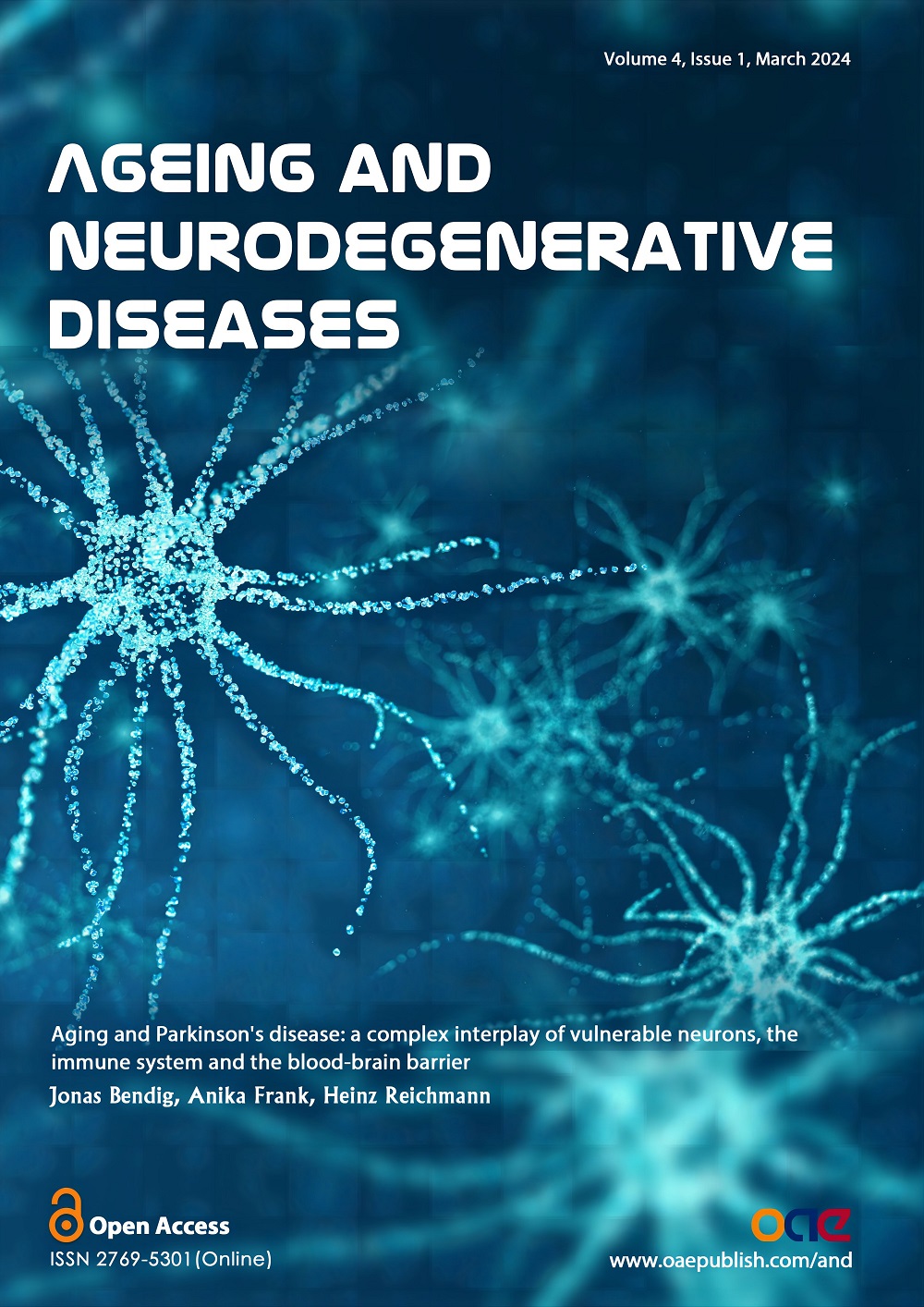Volume 4, Issue 1 (March, 2024) – 5 articles
Cover Picture: Aging is the biggest risk factor for Parkinson’s disease (PD) and a particular vulnerability of dopaminergic neurons in the substantia nigra to aging-associated effects has been firmly established. More recent work has revealed an important role of non-neuronal systems such as the blood-brain barrier (BBB) or the immune system in the pathogenesis of PD. Effects of aging on the immune system include a chronic inflammatory state termed inflammaging and immunosenescence. Both processes are connected to a higher pro-inflammatory potency and negatively affect the maintenance of self-tolerance. The BBB gets increasingly dysfunctional with advancing age and its endothelial cells display a more pro-inflammatory phenotype while the transport of important plasma proteins to the brain is impaired. The immune system and the BBB are heavily interdependent and are both essential for the homeostasis of especially vulnerable dopaminergic neurons. The degeneration of dopaminergic neurons can, in turn, influence the BBB or the immune system, potentially creating a vicious cycle. In this review, we aim to develop a multisystem perspective on aging and PD by incorporating the aging immune system and aging BBB into the pathophysiological processes. Given the current evidence, it seems likely that a combination of multimodal effects of aging on the levels of SN pars compacta (SNc) dopaminergic neurons, the immune system, and the BBB increase the risk of developing PD.
view this paper 







